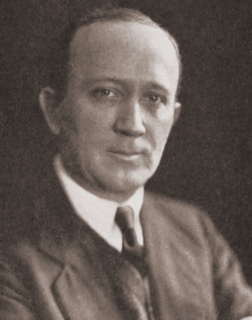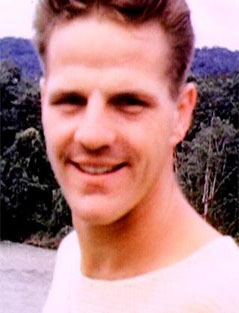Цитата Генри Дэвида Торо
Настоящий ученый лучше познает природу благодаря своей более тонкой организации; он будет обонять, пробовать на вкус, видеть, слышать, чувствовать лучше, чем другие мужчины. Его опыт будет более глубоким и тонким. Мы учимся не путем вывода, дедукции и применения математики к философии, а посредством прямого общения и сочувствия. С наукой так же, как и с этикой: мы не можем познать истину с помощью изобретений и методов; Бэконианец так же фальшив, как и любой другой, и при всей помощи машин и искусств самый ученый все равно будет самым здоровым и дружелюбным человеком и будет обладать более совершенной индийской мудростью.
Темы цитат
Любое
применение
Искусство
Лучше
Не может
Дедукция
Глубже
Прямая
этика
Опыт
Ложь
Чувствовать
тоньше
Слышать
Помогает
Своему
индийскому
Индийская мудрость
Вывод
Половой акт
Знать
Обучиться
Машины
Человек
Математика
Мужчины
Методы
Больше
Большинство
Природа
Организация
Другое
Совершенная
философия
Обладать
наукой
Научный
Видеть
Запах
Все еще
Сочувствие
Вкус
, чем
Истинный
Истинный человек
Истина
Мы не можем
Уилл
Мудрость
Связанные цитаты
Научный человек должен изучать природу ради истины, а не ради ее пользы для человечества. Применение науки к полезным искусствам требует других способностей, других качеств, других инструментов, чем его; и поэтому я говорю, что ученый, который следует своим исследованиям в их практическом применении, не соответствует своему призванию. Практический человек всегда готов взяться за работу там, где ее оставил ученый, и приспособить ее к материальным потребностям и использованию в повседневной жизни.
Он не настоящий ученый, который не проявляет симпатии к своим занятиям и не ожидает узнать что-то как своим поведением, так и приложением. Ребячество полагаться на открытие простых совпадений или частичных и посторонних законов. Изучение геометрии — мелкое и праздное занятие ума, если оно не применяется к более крупной системе, чем звездная. Математику следует смешивать не только с физикой, но и с этикой; это смешанная математика. Нас больше всего интересует жизнь натуралиста. Чистейшая наука по-прежнему биографична.
Департамент образования США; реализация научной материалистической философии; исследования, очищающиеся от религиозных, патриотических и других черт буржуазной идеологии; студенты обучались на основе марксистского диалектического материализма, интернационализма и общей этики нового социалистического общества; нынешние устаревшие методы обучения будут заменены научной педагогикой. Вся основа и организация капиталистической науки будут революционизированы. Наука станет материалистической, а значит, истинно научной. Бог будет изгнан из лабораторий, как и из школ.
На своем собственном опыте я обнаружил, что самые экстравагантные детские мечты не превзошли великого опыта пребывания в Воле Бога, и я верю, что ничего не может быть лучше. Это не значит, что я не хочу других вещей, иного образа жизни, и других мест, чтобы увидеть, но в здравом уме я знаю, что мои надежды и планы относительно меня не могут быть лучше, чем Он устроил и исполнил. их. Таким образом, мы все можем найти его и узнать истину Слова, которое говорит: Он будет нашим проводником даже до самой смерти.
Большинство из этих людей никогда не попадут в заголовки газет, и их имена не появятся в «Кто есть кто». Но когда пройдут годы и когда ослепительный свет истины сосредоточится на этом чудесном веке, в котором мы живем, мужчины и женщины узнают, а дети узнают, что у нас есть более прекрасная земля, лучшие люди, более благородная цивилизация - потому что эти смиренные дети Божьи были готовы страдать за праведность.
Я думаю, что люди науки, как и другие люди, должны учиться у Христа, и я думаю, что христиане с научным умом обязаны изучать науку, чтобы их взгляд на славу Божью мог быть настолько обширным, насколько это возможно. Но я думаю, что результаты, к которым приходит каждый человек в своих попытках согласовать свою науку со своим христианством, не должны рассматриваться как имеющие какое-либо значение, кроме как для самого человека, и только для него на время, и не должны получать клеймо общества.
Главная обязанность историка математики, а также его самая любимая привилегия — объяснить гуманность математики, показать ее величие, красоту и достоинство и описать, как непрекращающиеся усилия и накопленный гений многих поколений создали эту великолепный памятник, предмет нашей законной гордости как мужчин и нашего удивления, смирения и благодарности как личностей. Изучение истории математики сделает математиков не лучшими, а более мягкими, обогатит их умы, смягчит их сердца и выявит их лучшие качества.
Наука, по своей сути, — это просто метод практической логики, который проверяет гипотезы на основе опыта. Сциентизм, напротив, представляет собой мировоззрение и систему ценностей, которая настаивает на том, что вопросы, на которые может дать ответ научный метод, являются самыми важными вопросами, которые могут задать люди, и что картина мира, созданная наукой, является лучшим приближением к реальности, чем любая другая. .
Наука коренится в воле к истине. С волей к истине стоит или падает. Даже немного понизьте стандарт, и наука заболевает в своей основе. Не только наука, но и человек. Воля к истине, чистая и незамутненная, является одним из существенных условий его существования; если эталон скомпрометирован, он легко становится своего рода трагической карикатурой на самого себя.
Я считаю особенно важным, чтобы у ученого была четко сформулированная и адекватная социальная философия, даже более важная, чем у среднего человека должна быть философия. Ибо есть определенные аспекты отношений между наукой и обществом, которые ученый может оценить лучше, чем кто-либо другой, и если он не будет настаивать на этом значении, никто другой этого не сделает, в результате чего отношение науки к обществу исказится, во вред всем.
О Роберте сказано много, и еще будет добавлено. Молодые люди перенимают его походку. Молодые девушки будут носить белые платья и оплакивать его кудри. Его будут осуждать и обожать. Его эксцессы прокляты или романтизированы. В конце концов истина будет найдена в его творчестве, телесном теле художника. Он не отпадет. Человек не может судить об этом. Ибо искусство воспевает Бога и в конечном счете принадлежит ему.
Наука есть не что иное, как метод исследования. Метод говорит, что утверждение является достоверным и будет общепринятым только в том случае, если оно может быть воспроизведено другими и, таким образом, независимо проверено. Безличная строгость метода дала чрезвычайно мощные результаты за 400 лет. Научный метод совершенно аполитичен. Истина в науке поддается проверке независимо от того, черный вы или белый, мужчина или женщина, старый или молодой. Можно проверить, знаете ли вы экспериментатора или нет.


































